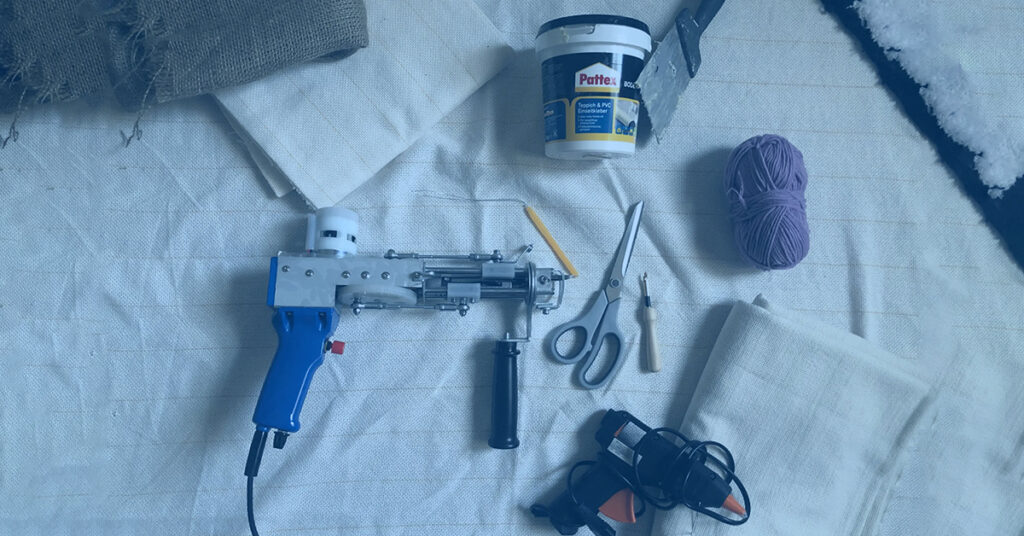Tufting is a fun and popular hobby that you can do from the comfort of your own home, and it has become increasingly popular during the pandemic. Some people make tufting their full-time job by selling hand-made rugs in their communities.
In this guide, we will assist you in getting the required rug tufting tools. In addition, to improve your tufting experiences, we have created a list of recommended items.
The 10 essential tools to start your tufting Journey
Tufting is a type of textile art that involves creating a pile or raised surface on a fabric with a tufting machine. If you want to start tufting, here are the 10 most essential tools you’ll need:
01. Tufting Machine
The tufting machine is the most essential tool for tufting. It is a portable sewing machine that shoots and cuts yarn into a canvas.
The most popular tufting machine in the world is the Blue AK-I Tufting Machine. It includes all of the features required to create professional-quality carpets and rugs. We recommend the Blue AK-I Tufting Machine for both new and experienced tufters.
It’s lightweight, has all of the necessary features, and is widely considered to be the best tufting machine in the world. The Blue AK-I Tufting Machine is simple to set up and hard to break, both of which are extremely common tufting problems. It only weighs 1.4kg, making it ideal for longer tufting sessions. Know more tufting machines options, Please visit the our full Collections of Tufting Machines
02. Primary Tufting Clothes
The primary tufting cloth is the blank canvas into which you will shoot your yarn. Because of the high speeds and aggressive nature of tufting machines, you require a very specific type of rug backing.
We offer cloths specifically designed for tufting guns; they stretch easily and have the correct size holes. It also has five-centimeter-long yellow lines that serve as markers. If you want to experiment without wasting any rug backing, use burlap.
Check that the rug backing is securely fastened to your frame. If it is sufficiently tight, a coin should bounce off of it. You must apply consistent pressure to the rug’s backing while tufting.
As a result, the rug backing will lose its tightness. It is best to re-stretch the rug support on your frame after a long session. To avoid having your rug design changed, make sure the yellow lines remain straight and do not bend after re-stretching.
